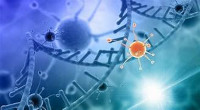Investigation of Carnitine Levels in some Biological Fluids http://www.doi.org/10.26538/tjnpr/v8i1.41
Main Article Content
Abstract
Autism spectrum disorder (ASD) refers to a certain degree of neurodevelopmental disorder in children that usually occurs during the first years of life. Until now, the causes and treatments for autism have remained obscure. Research has shown that ASD has been linked to a genetic defect in carnitine metabolism. This study was aimed at evaluating the levels of carnitine in the saliva and urine of children with ASD towards proposing a diagnostic biomarker. Sixty children ranging in age from 2 to 13 years were recruited for the study. The subjects were grouped into ASD and healthy control groups. Saliva and urine were collected from both groups. The enzyme-linked immunosorbent assay (ELISA) technique was used to estimate the total carnitine in the saliva and blood samples of the autistic children and the healthy control group. The results of the study showed that there was no significant difference in the level of salivary carnitine between the children with ASD (2.22±0.37 nmol/ml) and the normal children (2.33±0.86 nmol/ml). Meanwhile, there was a significantly lower average amount of carnitine in the urine of the ASD group (28.61±8.16 nmol/ml) compared to the control group (36.13±13.12 nmol/ml). A cut-off value of < 30.23 nmol/ml was obtained with a sensitivity level of 76.7 % and a specificity level of 66.7 %, with an overall accuracy level of 70.1 %.The findings of the study suggest that low urinary carnitine is a strong predictor of autism, and a cut-off value of < 30.23 nmol/ml provided a reliable diagnostic tool.
Downloads
Article Details

This work is licensed under a Creative Commons Attribution-NonCommercial-NoDerivatives 4.0 International License.
References
MacFabe D. Autism: metabolism, mitochondria, and the microbiome. Glob Adv Health Med. 2013;2(6):52-66.
Pinto JV, Moulin TC, Amaral OB. On the transdiagnostic nature of peripheral biomarkers in major psychiatric disorders: a systematic review. Neurosci Biobehav Rev. 2017; ;83:97-108.
Frye RE, Vassall S, Kaur G, Lewis C, Karim M, Rossignol D. Emerging biomarkers in autism spectrum disorder: a systematic review. Ann Transl Med. 2019; 7(23):1-21.
Hollis F, Kanellopoulos AK, Bagni C. Mitochondrial dysfunction in Autism Spectrum Disorder: clinical features and perspectives. Curr Opin Neurobio. 2017; 45:178-87.
Cozzolino R, De Magistris L, Saggese P, Stocchero M, Martignetti A, Di Stasio M, Malorni A, Marotta R, Boscaino F, Malorni L. Use of solid-phase microextraction coupled to gas chromatography–mass spectrometry for determination of urinary volatile organic compounds in autistic children compared with healthy controls. Analy Bioanalytical Chem. 2014; 406(19):4649-62.
Longo N, Frigeni M, Pasquali M. Carnitine transport and fatty acid oxidation. Biochimica et Biophysica Acta (BBA)-Mol Cell Res. 2016; 1863(10):2422-35.
Esterhuizen K, Van der Westhuizen FH, Louw R. Metabolomics of mitochondrial disease. Mitochondrion. 2017; 35:97-110.
Gupta A, Rawat S, Gupta P. Clinical Research and Therapeutic Importance of Dietary Supplement L-Carnitine. Asian J Pharmac Res. 2018; 8(1):47-58.
El-Gharbawy A, Vockley J. Inborn errors of metabolism with myopathy: defects of fatty acid oxidation and the carnitine shuttle system. Pediatric Clin. 2018; 65(2): 317-35.
Fahmy SF, El-Hamamsy MH, Zaki OK, Badary OA. l-Carnitine supplementation improves the behavioral symptoms in autistic children. Res Autism Spectr Disord. 2013; 7(1):159-66.
Hameedi AJ, Saud AM. Association of the Intronic Polymorphism rs3773364 A> G in Synapsin-2 Gene with Epilepsy Patients in Iraq. Iraqi J Sci. 2021: 2169-75.
Bölte S, Golan O, Goodwin MS, Zwaigenbaum L. What can innovative technologies do for autism spectrum disorders?. Autism. 2010; 14(3):155-9.
Strickland CM, Drislane LE, Lucy M, Krueger RF, Patrick CJ. Characterizing psychopathy using DSM-5 personality traits. Assessment. 2013; 20(3):327-38.
Ngounou Wetie AG, Wormwood KL, Russell S, Ryan JP, Darie CC, Woods AG. A pilot proteomic analysis of salivary biomarkers in autism spectrum disorder. Autism Res. 2015; 8(3):338-50.
Mamedov I, Zolkina I, Nikolaeva E, Glagovsky P, Sukhorukov V. Carnitine insufficiency in children with inborn errors of metabolism: prevalence and treatment efficacy. J Pediatr Endocrinol Metab. 2015; 28(11-12):1299-304.
Smith PA. The tantalizing links between gut microbes and the brain. Nature. 2015; 526(7573):312-4.
Marcovina SM, Sirtori C, Peracino A, Gheorghiade M, Borum P, Remuzzi G, Ardehali H. Translating the basic knowledge of mitochondrial functions to metabolic therapy: role of L-carnitine. Trans res. 2013; 161(2):73-84.
Karlic H, Lohninger A. Supplementation of L-carnitine in athletes: does it make sense?. Nutrition. 2004; 20(7-8):709-15.
Soliman NA, EL-Gaafary MN, Shalaby AA, Hussein OM, Taha NM. Physiological and Histopathological Effects of Two Seed Extracts (Phoenix dactylifera and Raphanus sativus) and L-Carnitine Drug on Semen Quality and Testicular Sexual Hormonal Changes in Adult Male Rabbits. Trop J Nat Prod Res. 2021; 5(10):1709-1715.


